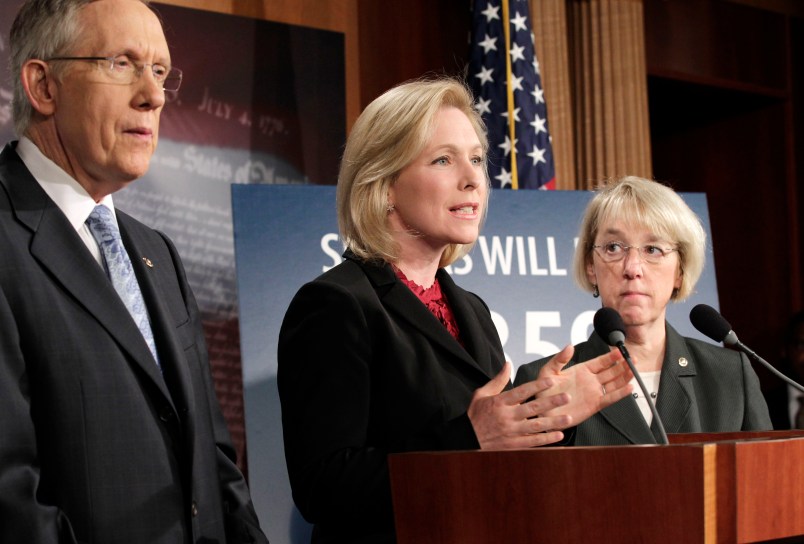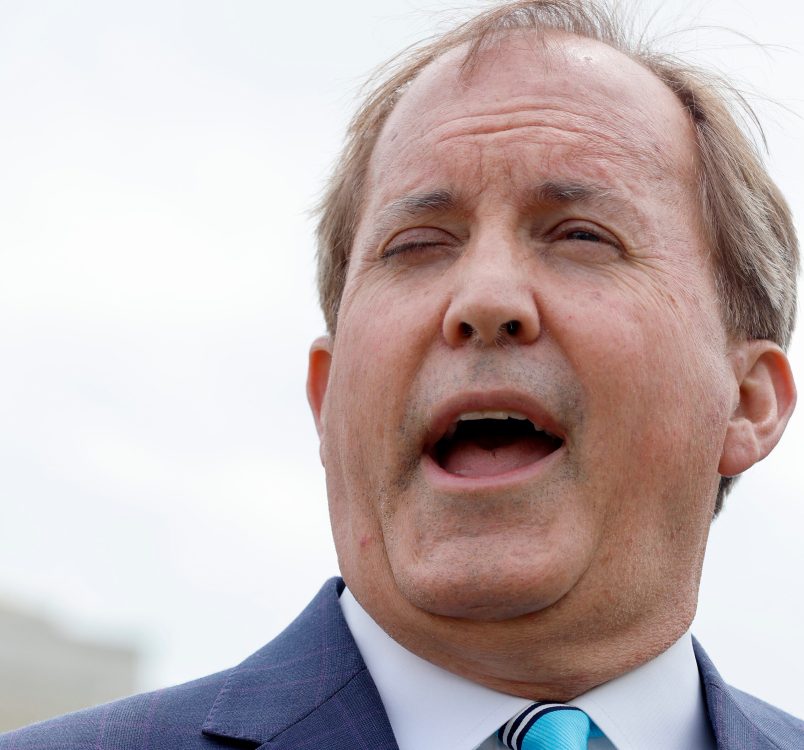As the minority party in the 114th Congress, Senate Democrats are staking out specific policy areas to direct most of their focus.
Now that they no longer have a majority in either chamber, they’re stuck with either blocking the Republican agenda or staking out positions of their own. Several key lawmakers have begun doing that.
“It’s a smart way to bring new voices to the leadership table,” Doug Thornell, a former top advisor to Rep. Chris Van Hollen (D-MD) and former deputy political director at the Democratic Senatorial Campaign Committee told TPM. “It also helps with accountability. It also helps people feel like they do have a role and that they’re part of the team, rather than a top down leadership structure.”
READ: Progressives Seek Control Of The Democratic Party
Here are five policy areas and the Democrats who are going to have a laser focus on them going forward:
Wall Street.
Consumer finance and economic related issues have always been the primary topic of Sen. Elizabeth Warren’s (D-MA) political career and public life which includes both helping to craft the Consumer Financial Protection Bureau and protecting Dodd-Frank. Lately though she’s ramped up uprooting Wall Street’s influence in the halls of Congress. Warren has managed to make an obscure nomination in the Treasury Department a major battle across party lines and within Democratic Party.
Warren’s latest skirmish came on Thursday when she tried (and failed) to add a provision to Terrorism Risk Insurance Act that would stop changes to Dodd-Frank, earning an unlikely ally in Sen. Marco Rubio (R-FL). Warren is expected to continue to push legislation like this.
Social Security.
Sen. Sherrod Brown (D-OH) taken the lead on staunchly defending Social Security, a position formerly held by former Sen. Tom Harkin (D-IA). In December Brown announced plans to reintroduce Harkin’s Strengthening Social Security Act and more recently Brown was one of the first Democrats to release a highly critical statement of House Republicans’ move to block routine transfers between the Social Security retirement trust fund and the Social Security disability program.
He’s going to be a very powerful voice for the progressive movement in America in the future,” Harkin said of Brown to TPM in December. “He is now and he’ll even get to be an even stronger voice in the future.”
Sexual Assault.
Since she became a senator, Kirsten Gillibrand (D-NY) has managed to become one of the leading voices on the Democratic side on military sexual assault, managing to get conservative Sens. Ted Cruz (R-TX) and Rand Paul (R-KY) to back her push to remove considering sexual assault cases from the military chain of command.
On Wednesday Politico reported that Gillibrand was gearing up for another push on overhauling assaults on the issue — and she may even have new allies on the other side of the aisle, since newly minted Sen. Joni Ernst (R-IA) has spoken out against military sexual assault.
Education.
In the 113th Congress, Sen. Patty Murray (D-WA) was chairwoman of the Senate Budget Committee. In the 114th Congress she is the ranking Democrat on the Health, Education, Labor, and Pensions Committee. That may be a shift but it also plays to one of Murray’s big interest areas: Education — reforming Bush’s much-hated No Child Left Behind law in particular. When she announced her push to become ranking member Murray described her desire to reform “the broken No Child Left Behind law, reducing the crushing burden of student loan debt, investing in early education.” According to Murray’s office, she thinks this is something that can attract bipartisan support.
Catherine Brown of the Center for American Progress, said Murray’s “been a very longstanding champion for disadvantaged students and she wants to keep the focus on making sure the funding goes to schools that have concentrations of low income students and that there’s meaningful accountability and regular check-ins.” This contrast with Alexander’s likely approach, she said, which is to keep control with the states, “They could just take the federal funding and absorb it into their budget and basically ignore disadvantaged students.”
Murray is hoping to work with Sen. Lamar Alexander (R-TN) on No Child Left Behind’s “overly burdensome testing requirements” (although Murray’s team hasn’t really articulated more than that other than she opposes them), according to Politico. This would likely please the National Education Association, the largest teachers union in the country and a core Democratic constituency, which has been trying to take advantage of anti-testing sentiment. Alexander is planning on holding a hearing on testing in the coming months.
Environment.
A telling piece of news for Sen. Brian Schatz (D-HI) came when Karen Lightfoot was announced as the Hawaii senator’s new policy advisor and communications director. Lightfoot’s hire makes particular sense when you look at her background. She previously worked on the House Energy and Commerce Committee and was the communications director for former Rep. Henry Waxman (D-CA). Schatz, a member of the Senate Energy and Natural Resources Committee, had been making a name for himself as, in the words of Grist, a “climate hawk” — someone who’s needed to go up against infamous climate change-denier Sen. Jim Inhofe (R-OK).
Schatz regularly touted energy and environment related legislation in the last Congress, most recently with Sen. Martin Heinrich (D-NM), aimed at modernizing the country’s energy infrastructure.









